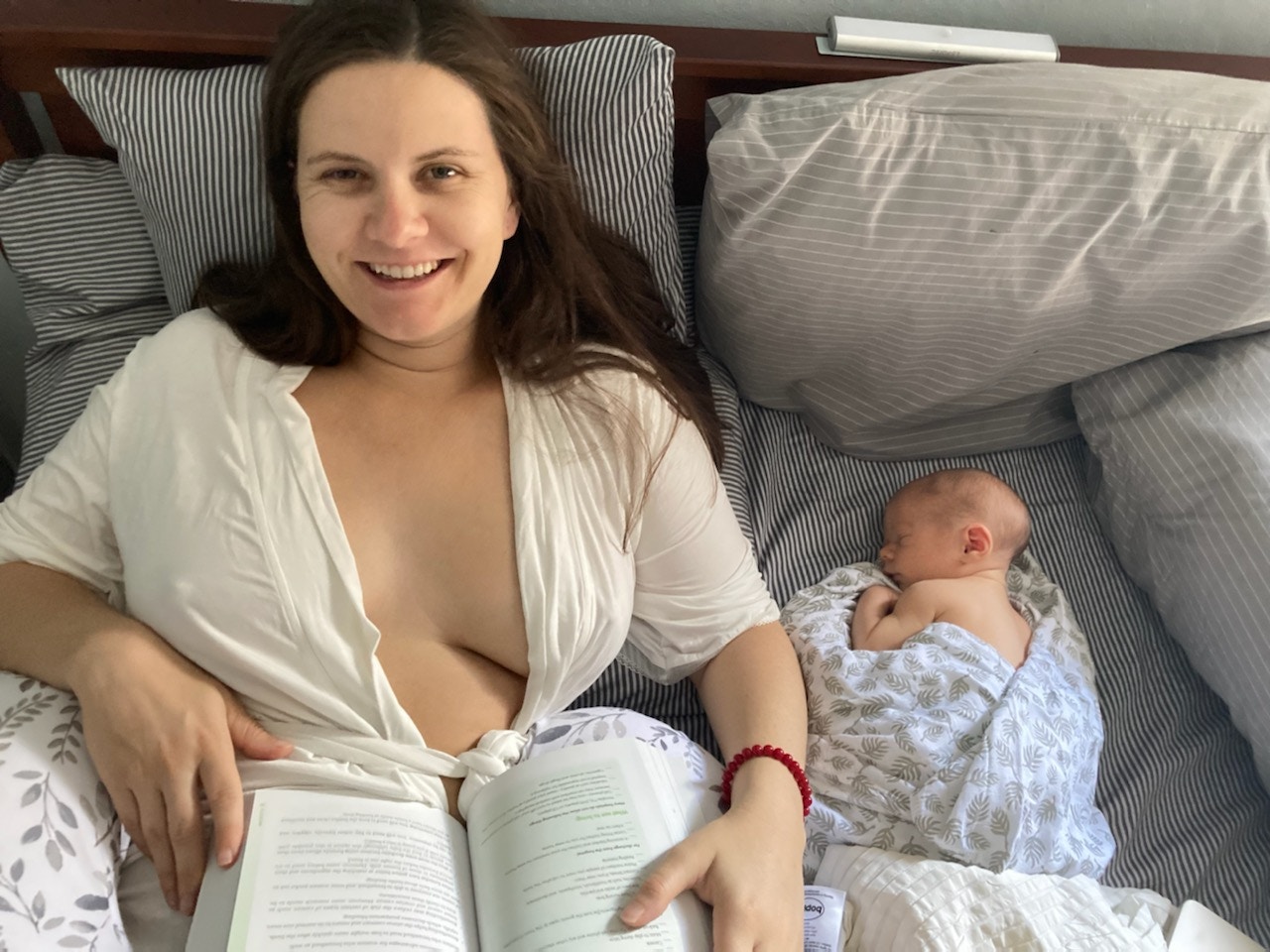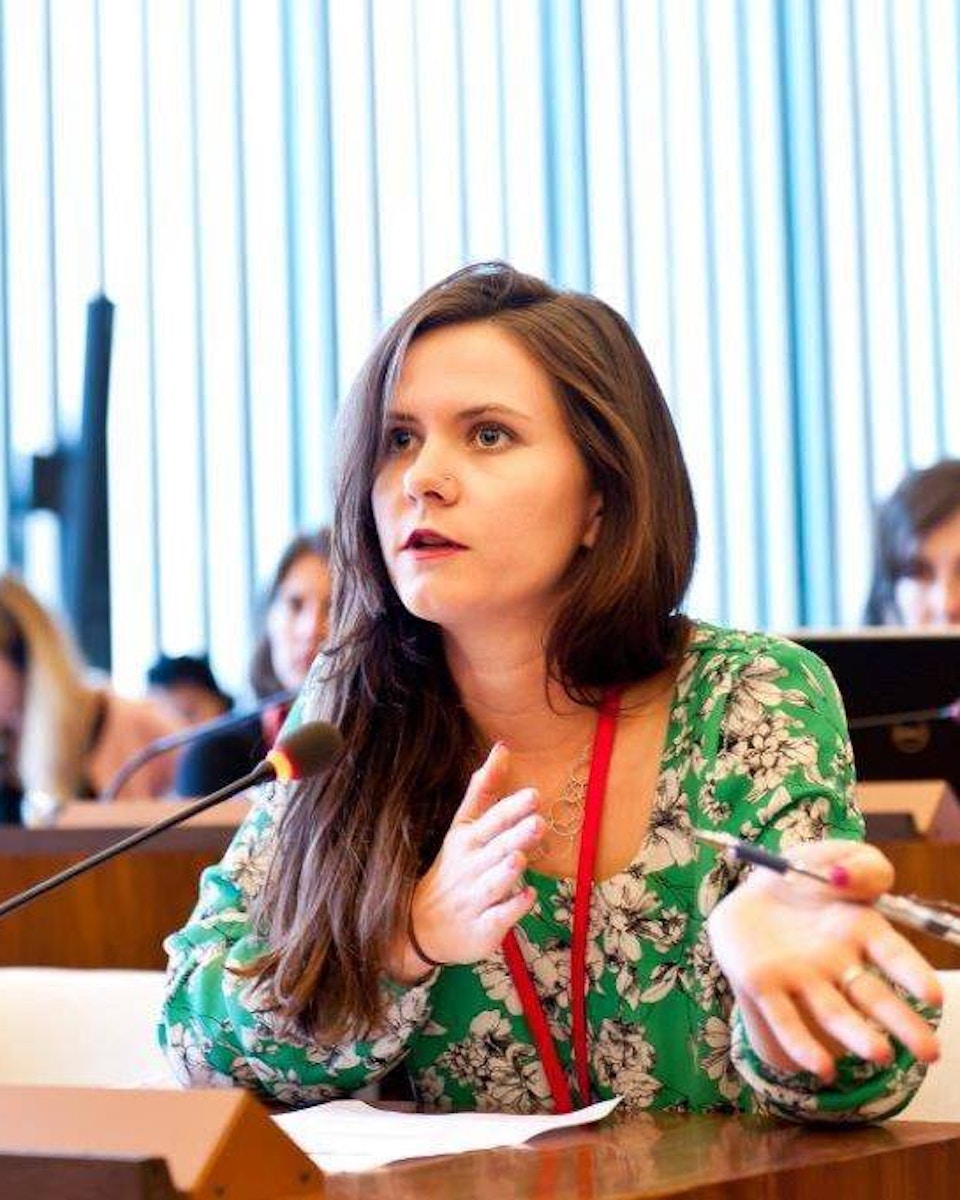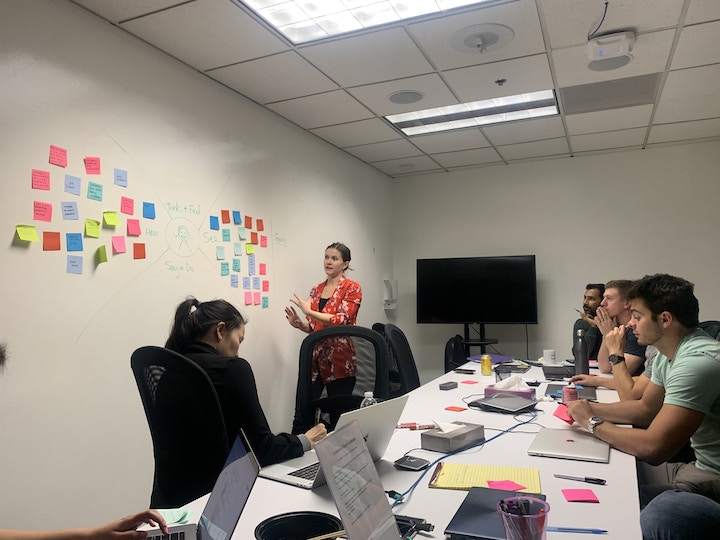
Caregiving in capitalism
Words by Dani Bicknell
No one warned me that raising a child in America can feel like an act of rebellion. I’m trying to make it a restorative one.
I’ve spent years untangling my relationship with internalized capitalism. For most of my adult life, I equated productivity with worth, burnout with ambition, and “doing it all” with success. But when I became a parent, those narratives collapsed. They didn’t just stop working—they made me feel like I was failing. What I didn’t realize was that becoming a parent meant stepping into a system that would punish me for it; expecting me to work as if I weren’t a parent, and parent as if I didn’t work. Something had to give. The pandemic accelerated that reckoning. The global pause, combined with the exposed cracks in our caregiving systems, forced me to confront how capitalism excludes and exploits rather than supports and sustains.
I became pregnant in October 2020. There was no vaccine at the time. Trump was denying everything. Reproductive rights were under attack. And I had to negotiate my parental leave and was told not to discuss it with coworkers because my California-based parental leave rights influenced what my international employer offered. I took four months, a mix of partial pay and unpaid time off, but the whole process felt unnecessarily complicated for something so fundamental. The experience revealed how performative support for parents often is. I was called a “superhero” and handed a gift card. What I really needed was structure, time, and care.

"What I didn’t realize was that becoming a parent meant stepping into a system that would punish me for it; expecting me to work as if I weren’t a parent, and parent as if I didn’t work."

Still, I had a lot of support that many don’t but should. A partner who could take five full months of parental leave—time that was bonding and healing for all of us. Supportive family. Health insurance. A steady paycheck to help cover childcare. Until I didn’t.
Almost two years after returning to work after giving birth, I was laid off the same week my toddler started preschool in Oakland (which cost over $2,500 a month, and I was lucky to have gotten a spot). When I got laid off, I got little warning, a vague explanation, and a “good luck” card. I panicked, but like most parents, I adapted fast. I started consulting and tried to build a tiny workplace model where care was essential, not a liability. But starting a business with a toddler and Bay Area rent, plus rising costs and no childcare safety net, was overwhelming. As a millennial, I knew stability was a luxury. So I dreamed bigger and imagined another way to raise my kid.
A year after the layoff, thanks to my partner being French and receiving a great opportunity, we moved to France for seven months. It was messy and magical, impulsive and strategic. There, we paid 80 euros a month for full-time preschool. That’s not a typo. Same child. Same developmental needs. Completely different system. The difference wasn’t just financial; it was philosophical. In France, raising a child is seen as an integral part of life, not a private inconvenience. Government subsidies, public infrastructure, walkable streets, and cultural norms all reflected the belief that families deserve support.
That time was beautiful, lonely, and deeply reflective. It didn’t fix everything, but it gave me a glimpse of what’s possible. It made one thing clear: the U.S. isn’t just falling short—we’re failing by design. We are one of the wealthiest countries in the world, yet we refuse to invest in the people who sustain life. Our system leaves caregivers, especially women, constantly bracing, overcompensating, and burning out. Even with planning, support, and privilege, I felt like I was drowning. That’s what broke me. It’s not that parents aren’t doing enough, it’s that the system isn’t taking care of us.
"I took four months of maternity leave, a mix of partial pay and unpaid time off, but the whole process felt unnecessarily complicated for something so fundamental. The experience revealed how performative support for parents often is. I was called a “superhero” and handed a gift card. What I really needed was structure, time, and care."



My partner’s leave changed our family dynamic in ways I’m still grateful for. Paid parental leave shouldn’t be something you’re “lucky” to get, it should be the norm for both parents. And when we hired a nanny during the pandemic and I returned to work, I asked for a raise. Not for myself, but so I could put her on payroll, provide benefits, and ensure she could take a sick day without fear. That wasn’t charity. That was solidarity. It was expensive, and it was worth it.
When we returned from France to Oakland in March 2025, I saw chaos all around me, but I also saw an opportunity. Perhaps it’s delusional optimism, but I believe that while the U.S. may be faltering, there’s still a chance to rebuild with caregiving at its center. Inspired by what I saw in France, I came back determined to advocate for change. I started small. Local. Tangible. Because if we can’t see better models, we can’t build them.
In the meantime, I make micro-adjustments. I block out time in my calendar for walks or just to breathe. I give them cheerful names and protect them like sacred meetings. It’s not about hiding, it’s about surviving. When things feel too heavy, I try to laugh. Humor has become a pressure valve. Some days feel like satire. Laughing helps me stay human while still working toward something better.

"A year after the layoff, thanks to my partner being French and receiving a great opportunity, we moved to France for seven months. It was messy and magical, impulsive and strategic. There, we paid 80 euros a month for full-time preschool. That’s not a typo. Same child. Same developmental needs. Completely different system."

When I think about what parents need—and what I needed—it isn't just grit. It’s policy, people, and imagination. Paid leave, universal childcare, and protections for care workers aren’t radical demands. They’re the scaffolding that makes family life possible. They’re the invisible supports behind every so-called “successful” working parent. And while we wait for policy to catch up, we still have each other—our communities, our jokes, our sacred breaks, our small rebellions.
Parenthood didn’t just change how I work but it did change why I work. It reoriented me toward love, rest, health, and connection. It made me want to rebel not just against broken systems, but against the belief that our worth lies in output.


"Humor has become a pressure valve. Some days feel like satire. Laughing helps me stay human while still working toward something better."
The conclusion I’ve come to—for now—is this: if we’re going to rebuild, we must first free our minds from capitalism to truly care for one another. Care and health are not luxuries. They are not commodities. They are the foundation of life itself. We don’t need to earn them. We need to build around them.
And while we live through the broken times, let’s remember to restore what we can: ourselves, our families, our sense of enoughness. Because when we center care, we create the possibility of something better—not just for our kids, but for all of us.
Dani Bicknell (she/her) is an educator, international activist, and founder of Dab Collab, where she helps leaders and organizations navigate capitalism through the lens of social impact, equity, and sustainability. She is the author of The Restorative Rebel: Memoirs & Musings on Internalized Capitalism and has worked across tech, entrepreneurship, and international development, advocating for gender equality and women’s financial empowerment at the UN and global NGOs. Known for her candid, engaging style, Dani blends introspection with practicality. When she’s not reimagining business culture, she’s spending time with her son, partner, and loved ones, challenging norms with heart and humor.